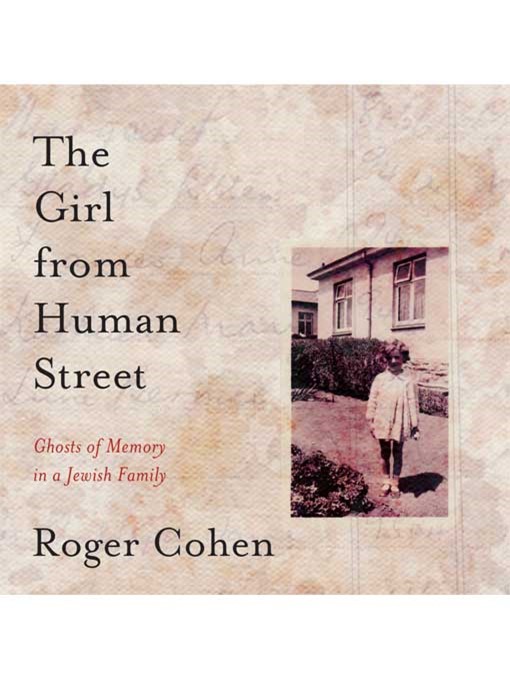- All Magazines
- Popular Magazines: Always Available
- Cooking and Food Magazines
- Craft Magazines
- News and Politics
- See all magazines collections
-
Creators
-
Publisher
-
Release date
January 13, 2015 -
Formats
-
OverDrive Listen audiobook
- ISBN: 9781622315482
- File size: 300789 KB
- Duration: 10:26:38
-
-
Languages
- English
-
Reviews
-
Publisher's Weekly
October 27, 2014
In a lyrical, digressive tracking of mental illness in his far-flung family, New York Times columnist Cohen (Soldiers and Slaves: American POWs Trapped by the Nazis Final Gamble) explores the tentacles of repressed memory in Jewish identity. Cohen’s grandparents on both sides came from Lithuanian shtetls and migrated at the end of the 19th century to South Africa. From modest beginnings as grocers and roving peddlers, they gradually prospered as business leaders and professionals in Johannesburg, far from the calamity of Nazi Germany. Cohen’s father, a doctor in Krugersdorp, settled in London after WWII, bringing his South African wife, June, née Adler; assimilation was the rule of the day, and the horrors of Auschwitz were not discussed. “Better to look forward, work hard, say little,” Cohen, born in the mid-1950s, writes. Paralyzing depression dogged his mother, requiring hospitalization and electroconvulsive therapy, and she made several suicide attempts over the years. Her manic depression was shared by other members of the family, which Cohen traces to being “tied to... a Jewish odyssey of the 20th century, and the tremendous pressure of wandering, adapting, pretending, silencing, and forgetting.” Cohen writes eloquently of the great looming irony of apartheid for the once similarly persecuted, now privileged Jews of South African, as well as the divisive oppression in Israel. Thoughtful, wide-ranging, he muses on his own migrations spurred by “buried truths.”
-
Formats
- OverDrive Listen audiobook
subjects
Languages
- English
Loading
Why is availability limited?
×Availability can change throughout the month based on the library's budget. You can still place a hold on the title, and your hold will be automatically filled as soon as the title is available again.
The Kindle Book format for this title is not supported on:
×Read-along ebook
×The OverDrive Read format of this ebook has professional narration that plays while you read in your browser. Learn more here.

